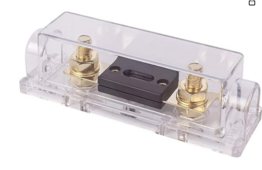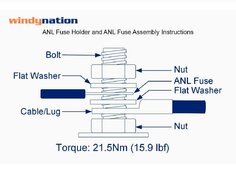MountainBiker
New Member
Hi folk. I have replaced the inline breakers (tried a few and none worked...they tripped OR the charger would blink on and off) that I originally had between the disconnect that goes to my Van battery (180a alternator) and the DC-DC renogy charger with a fuse as in the picture below. In the diagram you can see the relevant parts. I am getting heat at the connection of the fuse and wire that goes to and connects with the DC-DC charger. The fuse seems to "work" "but its warm to the touch but not really hot. I am thinking of replacing the wire from in the segment from the existing 6awg to 2awg.
I am looking for any advice about this. I will test it but worry i will only transfer the heat somewhere else...like maybe to the charger itself. Thoughts?
I am looking for any advice about this. I will test it but worry i will only transfer the heat somewhere else...like maybe to the charger itself. Thoughts?





